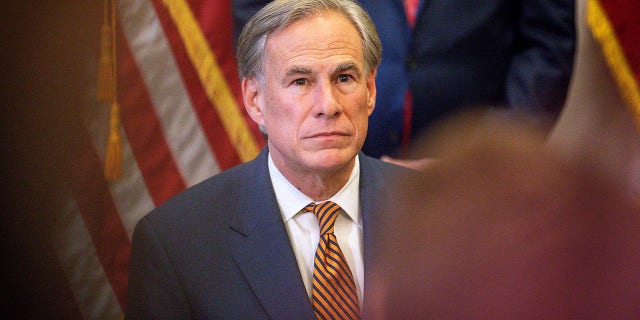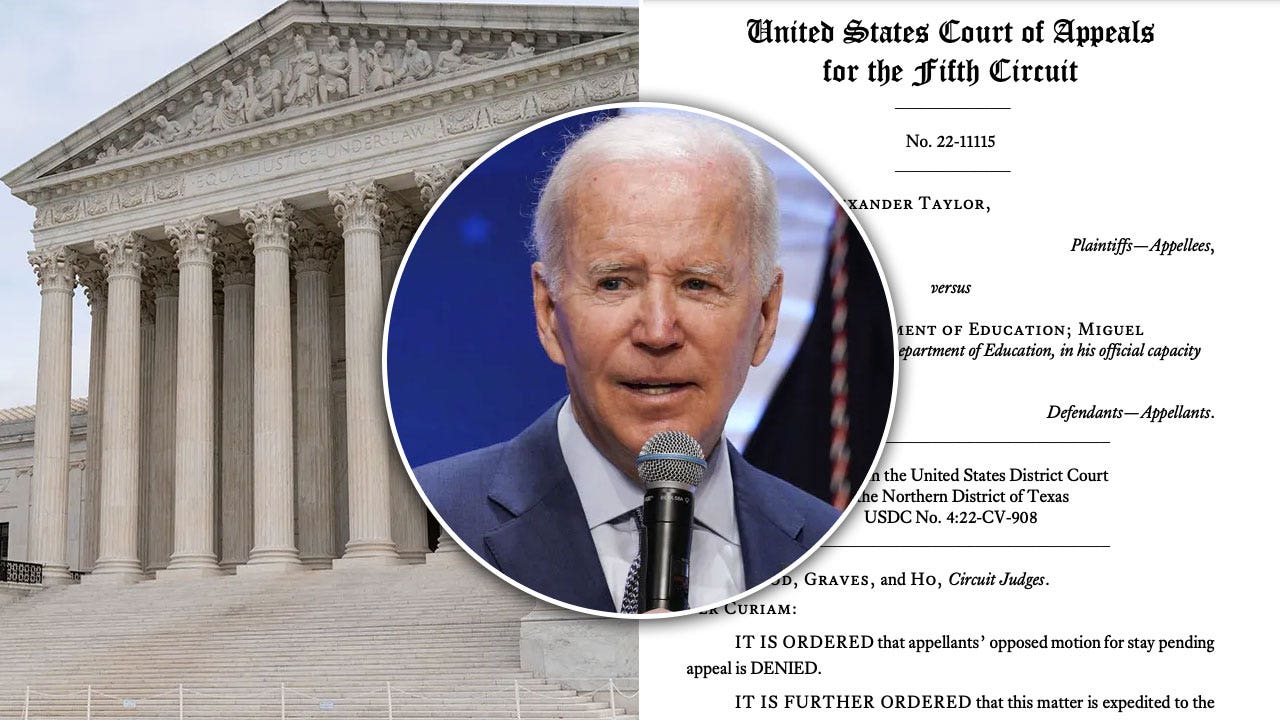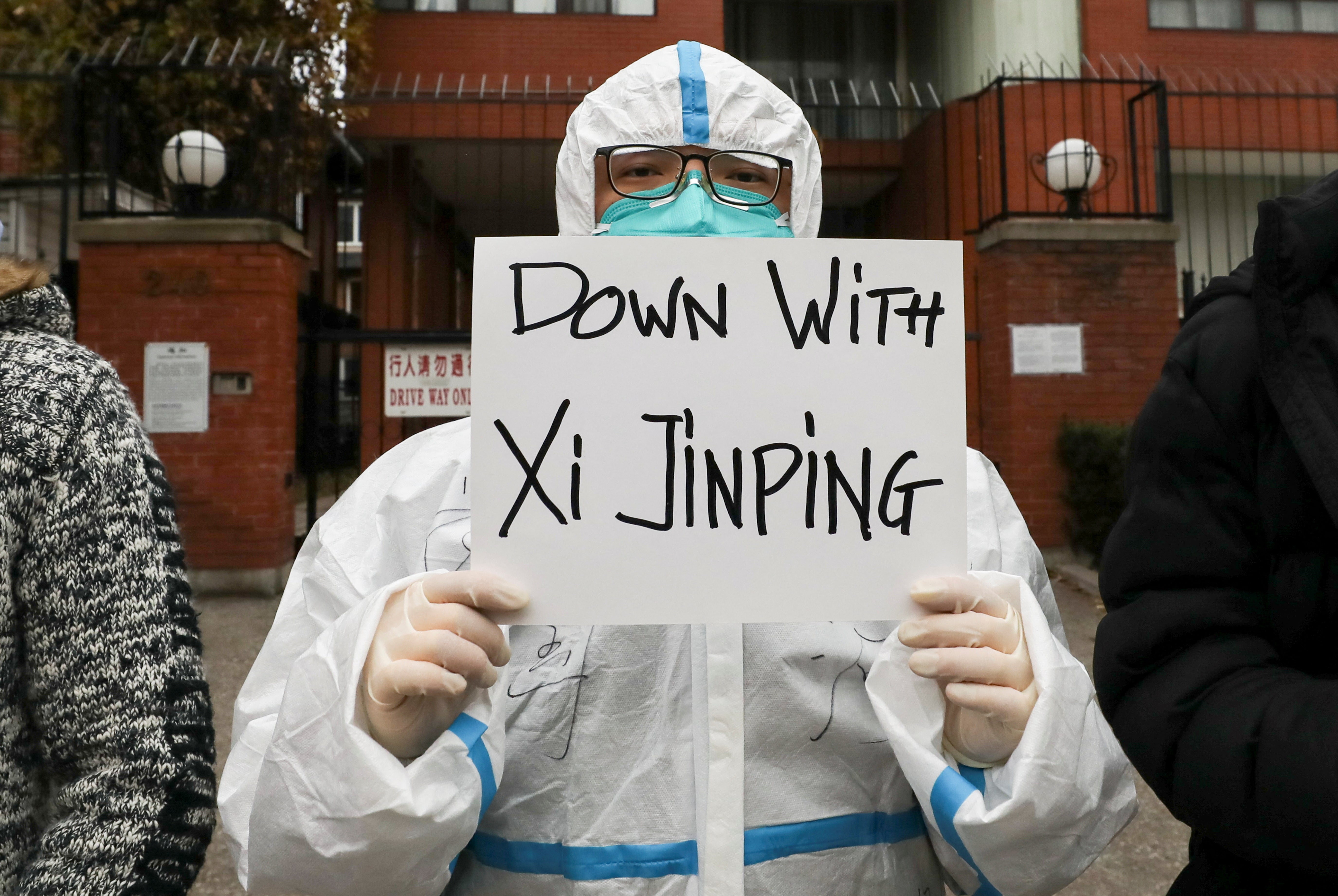Texas is heading to the polls. Voters in the Lone Star State will be the first in the nation to decide which candidates will appear on the ballot in the 2022 midterms, with the elections state attorney general’s seat and 38 elections in play.
The results of these races give us the first indication of the direction Democrats and Republicans want their parties to go as we approach elections” target=”_blank”>Election Day in November.< primaries with reporting and analysis as voting takes place today and live results throughout the evening. Here is your guide to the key races we are watching tonight.
Governor

Texas Gov. Greg Abbott at a news conference in Austin in June 2021.
(Montinique Monroe/Getty Images, File)
Republican incumbent Greg Abbott’s path through the primaries was at risk last year, as two right-wing challengers seized donor dollars and attention. Don Huffines, a former Texas state senator, and Allen West, the former U.S. House representative from Florida and retired Army lieutenant colonel, attacked Abbott relentlessly on his conservative credentials. Some analysts said those attacks triggered a rightward shift in Abbott’s policymaking, including most controversially, his move to outlaw most abortions in the state. Abbott also made headlines for his southern border tour with former President Trump last summer.
Still, despite the challenge from these and other competitors, there’s no convincing threat against Abbott going into tonight’s primary. He has a commanding polling lead and has raised $24.2 million since July, nearly four times the combined post-July totals of his competitors. While Trump allies reportedly have begged the former president to reconsider his Abbott endorsement, he did not make that switch. Put this all together, and Abbott should receive the most votes tonight.

Putin declares war, Biden administration in ‘reactionary mode:’ Allen West
Former congressman Lt. Col. Allen West reacts to Russia’s attack on Ukraine on ‘Fox and Friends.’
The governor needs to do more than take the most votes to secure a win. Texas is one of 10 states with runoffs, so he needs to take at least 50% (plus one vote) to avoid facing a second-place opponent again in May. Huffines and West are performing poorly in polls, but together, they could chip away at Abbott’s majority.
elections” target=”_blank”>COMPLETE DEMOCRACY 2022 ELECTION COVERAGE HERE<” in the months ahead.
Attorney General
The attorney general’s race is one of the most likely to end in a runoff. The incumbent Ken Paxton is well known to Republicans as a prolific litigant on issues ranging from immigration to COVID-19 regulations, but he has made more headlines in the past year for speaking at the Jan. 6 rally that preceded the deadly riots on the U.S. Capitol and an FBI investigation into him over allegations that he abused his office to help a wealthy donor. He faces three plausible competitors, including state Land Commissioner George P. Bush (grandson of the late President George H.W. Bush), Rep. Louie Gohmert and the former Texas Supreme Court Justice Eva Guzman. Two-term incumbent Paxton carries Trump’s endorsement, so tonight’s election is a crucial test of the power that he holds in 2022.
House
Texas gained two additional U.S. House seats after the redistricting process, for a total of 38 this year. Primary elections will take place in every district, but Fox News is covering seven in more detail (fundraising figures below come from OpenSecrets).
Appropriately enough, our coverage begins in the 1st Congressional District. This seat, in the northeastern part of the state, is just about as bright red as it gets, with sitting Rep. Louie Gohmert winning on a 45-point margin in 2020. With Gohmert departing (see above), the Republican nomination is wide open, though former Smith County Court Judge Nathaniel Moran is a clear fundraising front-runner.
In Texas’ 3rd Congressional District, which contains suburbs of Dallas, Rep. Van Taylor is seeking a third term. Taylor retained the seat on a 12-point margin in 2020 and the district has since been redrawn to contain more conservative votes, which should put Taylor in the driver’s seat to keep the seat in November. But Taylor, a Tea Party stalwart, has been criticized by Trump ultra-loyalists for supporting an investigation into the Jan. 6 riots, making his primary path tougher. Taylor has vastly out-raised his opponents, with $1.9 million total funds compared to just $200,000 for his closest competitor.
The 8th Congressional District, which includes Houston suburbs, also skews red, with an average 22-point partisan lean toward the GOP. Sitting Rep. Kevin Brady is retiring, with the Republican primary field led by Morgan Luttrell, a retired Navy SEAL who served in the Trump administration. Luttrell has raised nearly $2.2 million total, giving him a strong fundraising advantage, and has the backing of the popular U.S. House Rep. Dan Crenshaw. His toughest competition comes from former Sen. Ted Cruz aide Christian Collins, who is running to the right of Luttrell with Cruz’s endorsement. Collins has raised only about $400,000 in the primary.
The districts examined so far are in fairly safe Republican territory. But Texas’ newly redrawn 15th Congressional District is almost evenly divided between liberals and conservatives. The seat, mostly south of San Antonio, is the current home to Rep. Vicente Gonzalez, but the Democrat is retreating to safer grounds in the nearby 34th District, so both parties are looking for new nominees. On the Democrats’ side, former attorney and businessman John Villarreal Rigney leads in fundraising with $322,560 in total, but three other candidates have all brought in significant campaign cash, making this another possible runoff. The Republican race is convincingly led by Monica De La Cruz Hernandez, who has raised $1.7 million so far. She previously won the Republican nomination in 2020 before losing to Gonzalez by 2.88 points.
 Video
Video
Texas’ 28th Congressional District is another prime example of an intra-party battle. Here, the fight is on the Democrats’ side. Centrist Rep. Henry Cuellar has served the southern district since 2005, but he barely survived a primary challenge in 2020 from Jessica Cisneros, the rising star progressive backed by Sen. Bernie Sanders, I-Vt., and Rep. Alexandria Ocasio-Cortez, D-N.Y. Cisneros, a former human rights lawyer, is back in the arena this time, and while she continues to rely on the star power of AOC, she has spent less time talking about divisive ideas such as canceling student debt, and more time attacking Cuellar’s personal record. Cisneros couldn’t have picked a better time for her messaging shift, as Cuellar has faced an ongoing FBI investigation. Whoever wins will fight to maintain a seat that now leans about 5 points toward the Democrats.
Liberal voters have a similar choice to make in the 35th Congressional District, which includes parts of Austin and San Antonio. Incumbent Rep. Lloyd Doggett is moving to the newly created 37th district, but the 35th continues to lean heavily blue, so this is a fight to find the likely winner of the seat in November. The top two candidates include Greg Casar, a far-left former Austin city council member also backed by AOC, and state Rep. Eddie Rodriguez, who has been campaigning on progressive policies like affordable housing and health care, but who also said he’s willing to work with Republicans whenever he could. Casar has led by about $300,000 in total fundraising, but the candidates are evenly matched enough that a runoff is on the table.
Finally, watch Texas’s 38th Congressional District, one of two newly created seats. The seat, which includes Houston’s western suburbs, leans comfortably red, with an 18-point average partisan lean toward the GOP. Wesley Hunt is the dominant front-runner in the race, raising $2.4 million in total so far. Hunt, a U.S. Army veteran, recently spoke out against President Biden’s Afghanistan withdrawal strategy.
Election Notes
Notes on tonight’s races:
- Polls close in Texas by 9 p.m. ET (most voting booths will be closed by 8 p.m., but parts of West Texas are on Mountain Time, including the city of El Paso). Expect to see large batches of returns shortly thereafter. Many counties will report early in-person and mail vote first. Texas does not allow everyone to vote by mail: applicants must be 65 years or older, or have an excuse such as an illness.
- As mentioned above, Texas is one of 10 states with primary runoffs. A candidate must reach a majority (technically 50% plus one vote) in the race in order to be declared the winner after voting ends. If no candidate does, then voters will go back to the polls to choose between the top two candidates in any race without a majority on May 24.
- Texas has open primaries, which means registered voters don’t need to be affiliated with a party to cast a ballot in its primary. Instead, when voters go to the polls, they choose which primary they want to vote in (though not in both). If a large enough bloc of voters conspires to elect a weak candidate in their opponent party’s primary, also called “crossover voting,” it might damage that party’s prospects in November, but there hasn’t been much talk of it in these races.
- Elections are also taking place for lieutenant governor (where Republican incumbent Dan Patrick is the clear front-runner in his primary), the state legislature, Texas Supreme Court and a variety of local positions.
CLICK HERE TO DOWNLOAD THE FOX NEWS APP
Politics takes center stage tonight on Fox News Channel, as President Biden also delivers his State of the Union address at 9. Bret Baier and Martha MacCallum will anchor our special coverage.
You will also see live results from the key Texas primary races throughout the evening and on Wednesday, with “America’s Newsroom” anchor Bill Hemmer delivering results and analysis.
 Iktodaypk Latest international news, sport and comment
Iktodaypk Latest international news, sport and comment






